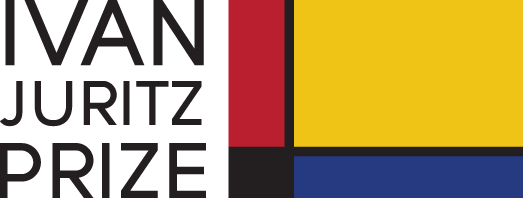
Ivan Juritz Prize Shortlist 2024
Text
Luke Allan, ‘Death to Books’
‘Death to Books’ mixes lyrical memoir, literary theory, and speculative metaphysics. The essay is made of prose fragments that build into a constellation, recalling similar stylistic experiments by Blaise Pascal, Theodor Adorno and, more recently, Maggie Nelson. The ‘death’ of the title is twofold: on the one hand, the piece memorialises a parent lost to suicide; on the other hand, it describes the author’s experience of losing reading, of falling out of love with books. The essay sets out to understand the relationship between these two ‘deaths’, though its real subjects may be the distractions and lifelines on which the text depends in order to carry on.
https://www.youtube.com/watch?v=FsVbBtKqT2U
Benjamin J. Larner, ‘Finding Nemo’
Reappropriating modernist poetics (problematically rooted in fascist, racist, and eugenic theory) to explore ethno-liminality and (dis)embodied otherness, ‘Finding Nemo’ employs the ‘Otherised Gaze’ to (de)construct disability/illness and identity (regarded as poieses of seeing and being) and make intersectionally manifest their experiential sphere: a nebulous melding of beauty, strangeness, and – importantly – grief. Inhabiting difference, the splicing of multitude ethno-cultural signifiers into a subversively uncanny holism, this work seeks to disembody the foundationally supremacist, able-bodied normativity of the Eliotesque/Poundian modernist text whilst re-embodying that very mode of poetic textuality as an expression of protean Crip alterity – something ungraspably fluid and ecstatically other.
Finding Nemo, Benjamin J. Larner
Image
Cat Madden, ‘Problems to Play’
‘I intuitively explore the in-betweenness of things, problems, play, and transformation through installation, object-making, and drawing. ‘Not knowing’ is a space for creative experimentation, problem solving, and discovery.
Drawing is my touch, the traces of accidents, my writing, the experience of searching, of figuring things out, of getting confused.
My process is play – the seriousness of play, the joy of play, the learning from play.
In everyday materials I seek wonder. I fuse things that don’t ‘belong’, I use things that may not last, and I place things you might (nearly) step on.’
Bowen Zhang, ‘Ship Mountain Project’
Bowen Zhang is a Chinese artist currently based in London and the Zhoushan Archipelago. Drawing inspiration from his family’s deep roots in fisheries and manual labour, his islander and Chinese diaspora identity, and vast travelling experiences, Bowen’s practice delves into the topics concerning the fishing industry/labour market, power structure regarding gender and class, and leisure tourism. Bowen’s artistic endeavours span mediums such as object-making, writing, social activism, and actions, offering a multifaceted exploration of his heritage and its intersection with contemporary issues.
In his current artistic practice, Bowen addresses performativity and masculinity within the fishing industry and explores the personal and public relationships with labour in mainland China. Additionally, Bowen utilizes the archipelago’s nature to structure art practices and decentralized organizations as well as offering a poetic and political perspective on leisure tourism and its implications.
Ship Mountain Project, Bowen Zhang
Sound
Tiina Myllärinen, ‘Delante – Detrás’
Delante – Detrás (engl. in front – behind) is about communication and being together in a group. The title refers to the musical layers sometimes mixed together, sometimes a musician being in front or behind others; it also refers to vowels the singer makes in the front and back of the mouth and to actual movements, since the players are moving during the piece, making a theatrical element part of the dramaturgy. The point of the piece is to show the difficulty of working together as a group, in this individualistic world where everybody wants to be the one in the spotlight.
https://tiinamyllarinen.com/en/portfolio/delante-detras-2023-2/
Laura Netz, ‘Medial Dark Ages’
Medial Dark Ages is a piece which uses field recordings, DIY electromagnetic detectors, and open-source electronic instruments. Listening in a different context can surprise us with sounds we didn’t notice before but were always present. Recording nature is a way to document the changing world. I have worked with bats, crickets, and sheep recordings in this composition. I have been experimenting with Bat5 Digital Bat Detector for the bats, which amplifies and filters the bat’s signals. The composition adheres to a postmaterialist perspective on technology, such
as in James Bridle – New Dark Ages – and intends to fit music technology in the context of critical thinking and media archaeology theory.
Link to Medial Dark Ages, including live performance video (scroll down the webpage to see this):
